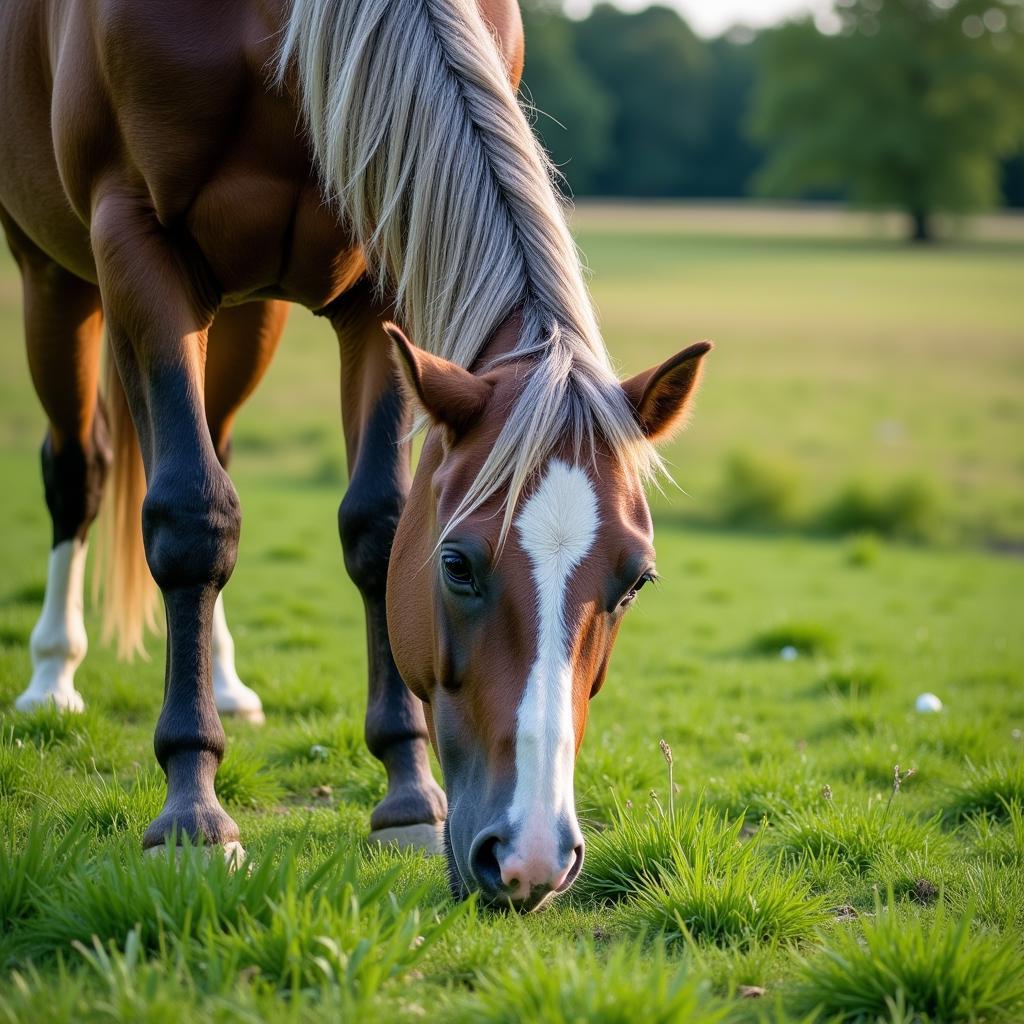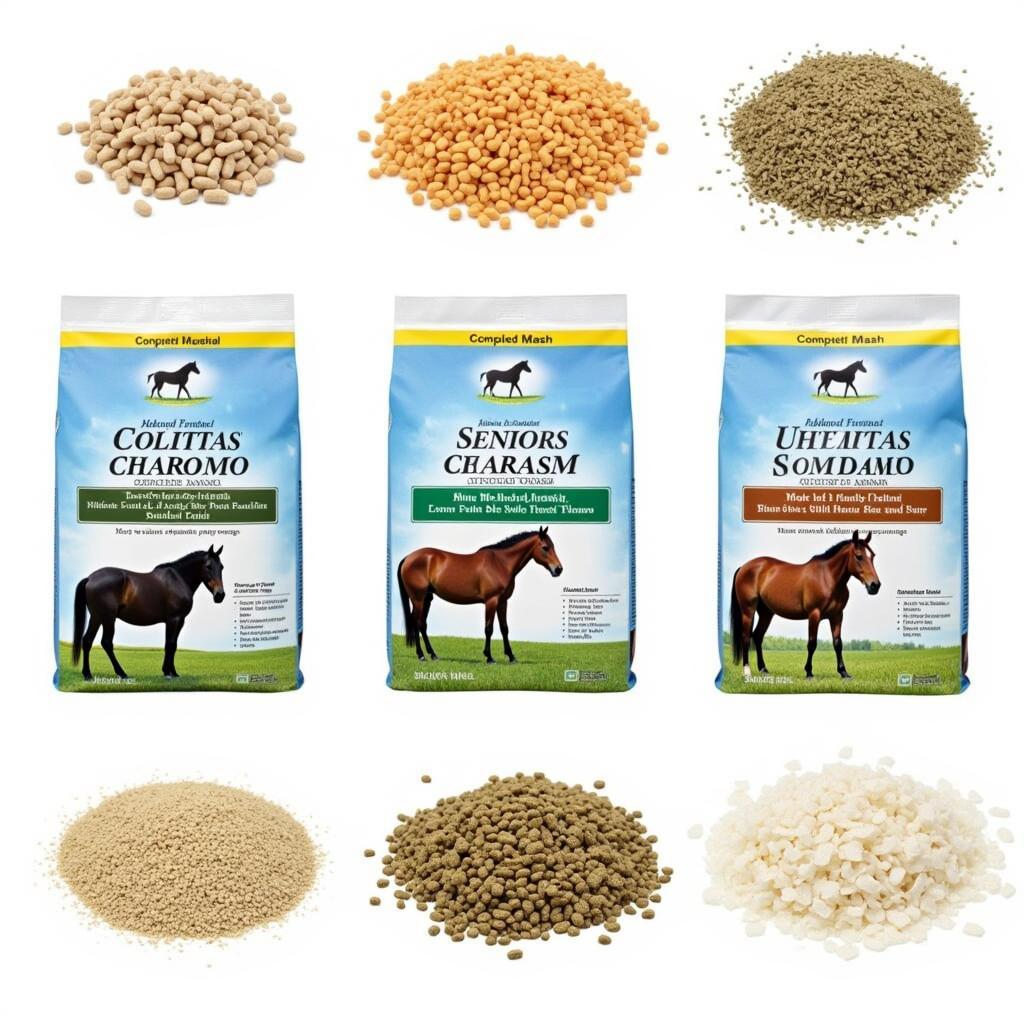As our horses age, their nutritional needs change. Just like humans, senior horses may experience a decline in digestive efficiency, difficulty chewing, and decreased nutrient absorption. Choosing the right senior horse feed is crucial to support their overall health, vitality, and quality of life during their golden years.
This comprehensive guide will delve into the essential factors to consider when comparing senior horse feeds, empowering you to make informed decisions for your aging companion.
Understanding the Nutritional Needs of Senior Horses
Senior horses, typically those over 15 years old, require specific nutrients to combat age-related challenges.
- Fiber: As always, a high-fiber diet remains crucial, promoting healthy digestion and preventing impaction colic, a common concern in older horses.
- Protein: Adequate, high-quality protein is essential for maintaining muscle mass and supporting immune function, which can decline with age.
- Fat: Easily digestible fats provide a concentrated energy source, particularly beneficial for senior horses who may struggle to maintain weight.
- Vitamins and Minerals: Age can affect nutrient absorption. Senior horse feeds often include higher levels of vitamins like E and C, as well as minerals like selenium, to support immune health and combat oxidative stress.
 Senior Horse Grazing in Pasture
Senior Horse Grazing in Pasture
Key Considerations When Comparing Senior Horse Feeds
Navigating the world of senior horse feeds can feel overwhelming. Here’s a breakdown of key factors to guide your decision-making:
1. Life Stage and Activity Level
- Less Active Seniors: Horses with lower activity levels may benefit from feeds lower in calories and starch to prevent weight gain.
- Active Seniors: Horses still enjoying regular work or riding may need feeds higher in calories and fat to support their energy needs.
2. Dental Health
- Dental Issues: Senior horses often experience dental problems that make chewing difficult. Look for feeds specifically designed for seniors with dental issues, such as complete feeds, mashes, or pelleted options that are easier to consume.
3. Body Condition and Weight Management
- Weight Loss: Senior horses prone to weight loss may need feeds higher in fat and fiber to help them maintain a healthy weight.
- Weight Gain: For horses prone to weight gain, choose feeds lower in calories and starch and monitor their intake carefully.
 Different Types of Senior Horse Feed
Different Types of Senior Horse Feed
4. Ingredient Quality and Digestibility
- High-Quality Ingredients: Opt for feeds with easily digestible ingredients like beet pulp, soy hulls, and rice bran. Avoid feeds with high levels of fillers or byproducts.
- Prebiotics and Probiotics: These ingredients support gut health, which is particularly important for senior horses who may experience age-related digestive issues.
5. Specific Health Concerns
- Cushing’s Disease (PPID): Horses with Cushing’s disease require low-starch, low-sugar feeds to manage insulin resistance.
- Arthritis: Consider feeds containing joint support supplements like glucosamine and chondroitin sulfate.
Types of Senior Horse Feeds
- Complete Feeds: These feeds are designed to provide all the necessary nutrients, including forage, in one convenient package.
- Senior Mash: Mashes are highly palatable and easy to chew, making them an excellent choice for senior horses with dental problems.
- Pelleted Feeds: Pellets offer a consistent nutrient profile and are less dusty than traditional grain mixes.
- Senior Grain Mixes: These mixes often combine grains, pellets, and other ingredients to provide a balanced diet.
Evaluating Senior Horse Feed Labels
Understanding feed labels is essential for choosing the right product for your horse. Look for:
- Guaranteed Analysis: This section lists the minimum percentages of crude protein, crude fat, crude fiber, and other nutrients.
- Ingredient List: Ingredients are listed in descending order by weight.
- Feeding Instructions: Follow these guidelines as a starting point, but adjust the amount based on your horse’s individual needs and body condition.
Transitioning Your Horse to Senior Feed
Always transition your horse to a new feed gradually over 7-10 days to avoid digestive upset. Start by replacing a small portion of their current feed with the new senior feed and gradually increase the amount while decreasing the old feed.
Monitoring Your Senior Horse’s Condition
Even with the best senior horse feed, it’s vital to monitor your horse’s condition closely. Watch for changes in weight, appetite, coat condition, and manure consistency. Consult with your veterinarian if you notice any significant changes or have concerns about your horse’s health.
Conclusion
Choosing the right senior horse feed is an act of love and care for our aging equine companions. By understanding their changing nutritional needs and carefully evaluating feed options, we can provide them with the essential nutrients they need to thrive in their golden years. Remember, providing ample fresh water, regular exercise, and a loving environment are equally important for ensuring your senior horse’s overall well-being.
FAQs
1. When should I switch my horse to senior feed?
There is no set age, but most horses benefit from a senior feed starting around 15 years old. However, you may need to transition sooner if your horse experiences age-related challenges like weight loss or difficulty chewing.
2. Can I still feed my senior horse hay?
Absolutely! Forage should still make up the majority of your senior horse’s diet. However, you may need to supplement with a senior feed to meet their increased nutritional needs, especially if they have difficulty chewing or digesting hay.
3. My senior horse has Cushing’s disease. What should I feed him?
Horses with Cushing’s disease require specialized diets low in starch and sugar. Consult with your veterinarian for recommendations on the best feed options for your horse.
4. My senior horse is losing weight. What can I do?
Weight loss in senior horses can have various causes. Consult with your veterinarian to rule out underlying medical conditions. They can also advise you on adjusting your horse’s diet, such as choosing a feed higher in fat and fiber.
5. Where can I learn more about senior horse care?
Justus Horses USA offers a wealth of information on horse care, including articles, resources, and expert advice. Visit our website or contact our team for personalized guidance.
Need More Help?
Our team of equine experts at Justus Horses USA is dedicated to helping you provide the best possible care for your horses. Contact us at 0772127271, email us at [email protected], or visit us at QGM2+WX2, Vị Trung, Vị Thuỷ, Hậu Giang, Vietnam. We’re here to support you 24/7.